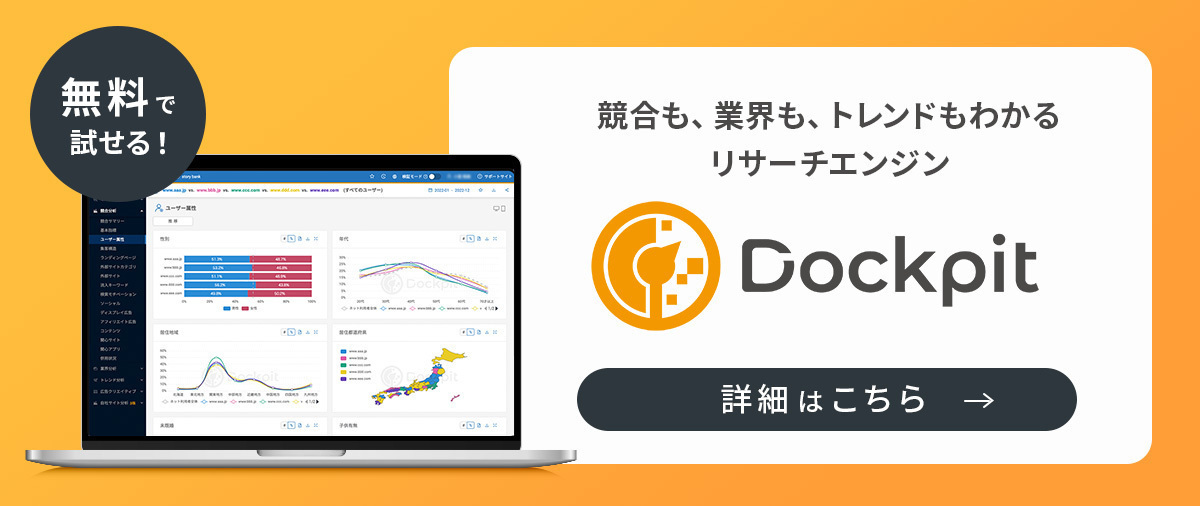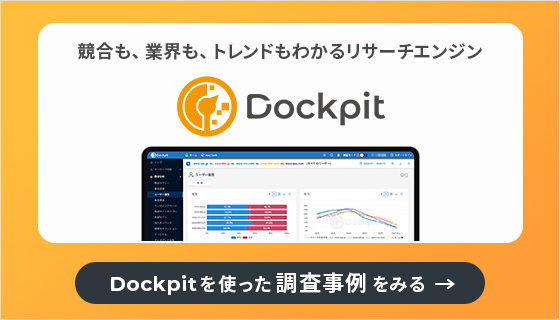What is Cause-Related Marketing?
Firstly, we will explain the definition and history of cause-related marketing.
■Marketing Tied to Environmental Protection and Social Contributions
Cause-Related Marketing (CRM) is a strategy where a portion of the profits from product or service sales is donated to organizations or agencies conducting environmental and social service activities, aiming to increase sales and improve the corporate image.
The literal translation of Cause-Related Marketing is as follows, and it is often abbreviated as "CRM" or referred to simply as "Cause Marketing":
Cause → Social Just Cause
Related → Connected
Marketing → Marketing
By emphasizing societal issues that a company considers important and implementing effective campaigns towards solving them, it could be said that it's a type of CSR (Corporate Social Responsibility) activity. Unlike many CSR activities that may not directly connect with corporate profits, cause-related marketing uniquely combines profit-making with societal contributions.
■History of Cause-Related Marketing
The first successful instance of cause-related marketing emerged in the USA in 1976.
The major hotel chain, "Marriott Corporation," and the charity "March of Dimes," which aims to reduce premature births and infant deaths, conducted a campaign. With the mutual objectives of Marriott Corporation wanting to promote its entertainment facilities and March of Dimes seeking more donations, they raised about $2.4 million through their cause-related marketing endeavor.
Furthermore, the project that spread the concept of cause-related marketing globally was the "Statue of Liberty Restoration Project" carried out by American Express in 1983.
For every transaction made using an American Express card, one cent was donated to the Statue of Liberty Restoration Fund, creating buzz worldwide. As a result, they successfully raised $1.7 million for the restoration fund, and the use of American Express cards reportedly increased by about 30%.
Why Cause-Related Marketing is Gaining Attention
Cause-related marketing, deeply tied to environmental protection and social contributions, is becoming a more recognized strategy as efforts towards the Sustainable Development Goals (SDGs) progress.
■Emergence of the Socially-Conscious Y & Z Generations
A significant reason for the growing focus on cause-related marketing is the changing values of the core consumer demographic.
The Y and Z generations, those born after 1975, have witnessed events like the Lehman Brothers' collapse, global warming-induced climate anomalies, the Great East Japan Earthquake, and the COVID-19 pandemic. They have a strong interest in environmental and social responsibilities and seek a more sustainable society.
Therefore, cause-related marketing, which resonates with these socially-conscious generations, has been increasingly adopted by numerous companies.
■A Marketing Strategy Compatible with Social Media
Consumers of the Y & Z generations primarily gather information via social media platforms rather than traditional mass media.
They are adept at disseminating information on platforms like Twitter, Instagram, and Facebook and are proactive in sharing their views on societal issues. On platforms renowned for their ability to rapidly spread information, socially responsible topics are more likely to be shared. This makes cause-related marketing a strategy that meshes well with social media.
The rapid growth of social media platforms is one of the reasons cause-related marketing is gaining attention. It's safe to say that for future success in cause-related marketing, social media will remain an indispensable tool.
Effects of Cause-Related Marketing
Cause-Related Marketing is a 'win-win-win' approach where companies can raise their profits while contributing to society and also offer value to their customers. In this section, we'll explain the specific effects of Cause-Related Marketing.
■Improving Customer Satisfaction & Corporate Profits
When consumers purchase a product, they not only satisfy their desire to buy but also get a feeling of having "participated in social contribution" through the act of selecting and buying that product.
As consumers can make purchases with a sense of societal significance, their satisfaction increases. The mentality of "if I'm going to buy, I'll buy something that contributes to society" leads to an increase in sales for those products, which in turn enhances corporate profits.
■Boosting Corporate Image
With Cause-Related Marketing, as companies engage in high social contribution activities like environmental preservation, poverty support, and disaster recovery, if the campaign becomes widely recognized, consumers will associate the company's name with societal contributions.
If it's ingrained in consumers that a company is "committed to social contribution," it can lead to a boost in the company's image.
■Increasing Employee Motivation
An improved corporate image fosters pride in the employees towards their company, which boosts motivation.
When employees are highly motivated, it leads to increased productivity and engagement. For the company, this means they can achieve branding from the inside out, creating a synergistic effect.
Points of Caution for Cause-Related Marketing
While Cause-Related Marketing brings many advantages, there are also points to be cautious of to prevent counterproductive outcomes.
Even if it's not the intention, if a campaign misconstrues the message to consumers, it can lead to perceptions that the company is "exploiting social contribution," ultimately tarnishing the company's image.
For instance, there could be adverse effects if a company suddenly launches a campaign that has no relation to its business operations, or if it's discovered that a product hasn't been environmentally friendly.
Rather than focusing on profits, it's crucial to clarify the purpose of contributing to society and to consistently implement related measures.
Five Notable Cause-related Marketing Examples in Japan
Here, we introduce five representative examples of cause-related marketing in Japan.
■Sapporo Beer's "Kumamoto Castle Reconstruction Support Can"
After the devastating "2016 Kumamoto Earthquake," Sapporo Beer has been selling the "Kumamoto Castle Reconstruction Support Can" every year since 2017 to support the restoration and repair of Kumamoto Castle.
Starting in 2022, for every can sold, 1 yen is donated to the Kumamoto Castle disaster recovery. Furthermore, a QR code is featured on the can, leading customers to a fundraising page for the "Reconstruction Lord" initiative to rebuild the castle.
Reference: Sapporo Beer | Kumamoto Castle Reconstruction Support Can
https://www.sapporobeer.jp/entertainment/kyushu/kumamotojou/
■Morinaga Confectionery "1 Chocolate for Smile"
Since 2008, Morinaga Confectionery has been actively supporting countries such as Ghana, major cocoa producers, by improving educational conditions and addressing child labor issues.
In collaboration with NGOs, they annually donate and run special campaigns where for every targeted product like Morinaga chocolate sold, 1 yen is donated. Under the philosophy of "Connecting smiles of both the chocolate consumers and children learning in cocoa-producing countries," they have donated close to 300 million yen.
Reference: Morinaga Confectionery | 1 Chocolate for 1 Smile - Another person is happy when you eat.
https://www.morinaga.co.jp/1choco-1smile/
■AEON's "Yellow Receipt of Happiness Campaign"
Aeon designates every 11th day of the month as "Aeon Day," a day dedicated to environmental and community contribution activities.
The "Yellow Receipt of Happiness Campaign" conducted on Aeon Day allows customers to deposit their yellow receipts into in-store boxes labeled with local volunteer groups. AEON then donates goods equal to 1% of the total receipt amount to these groups. These groups focus on various activities, such as welfare, community building, environmental preservation, promotion of arts and culture, and initiatives for children's health and safety.
Since the campaign's inception in 2001, they have donated items worth about 4.9 billion yen as of February 2023.
Reference: AEON | Yellow Receipt of Happiness Campaign
https://www.aeon.info/sustainability/social/yellow/
■Oji Nepia "Nepia's Thousand Toilet Project"
Oji Nepia has been supporting East Timor since 2008 through donations to UNICEF.
Due to a lack of infrastructure in East Timor, many children contracted diseases like diarrhea from open defecation, leading to numerous deaths. To address this, the "Thousand Toilet Project" was initiated, where a portion of the sales from Nepia's targeted products went towards the construction of toilets and improvement of sanitary conditions.
The project's results after its conclusion in 2021 are as follows:
Total donation: Approx. 210 million yen
Number of people now with access to toilets: Approx. 134,000
Toilets constructed: About 22,000
Declarations of open defecation-free zones: 68 villages & 425 settlements
Mortality rate of children under five: Improved by approx. 36%
The 13-year effort yielded significant results.
Reference: Nepia | Thousand Toilet Project
https://www.nepia.co.jp/1000toilets/
■Kirin Beverage's "Volvic UNICEF '1L for 10L' Program"
The "1L for 10L" program is a joint initiative between Volvic and UNICEF, which began in Germany in 2005 and was implemented in Japan from 2007 to 2016.
For every liter of Volvic shipped, 10 liters of clean and safe water were supplied to supported countries.
The support over nine years has led to the following improvements in the Republic of Mali:
Total support of approximately 50 billion liters of water
Construction and repair of about 277 wells
Reduction in the incidence rate of diseases caused by unsanitary conditions
Training of workers and provision of tools, allowing for independent well maintenance
The project didn't just focus on donations; by informing consumers about the conditions in Africa and the activities, they garnered trust and achieved substantial results.
Reference: Kirin Holdings | Volvic UNICEF '1L for 10L' Program
https://www.kirinholdings.com/jp/newsroom/release/2016/0407_03.html
Summary
Cause-related marketing, which aims to address societal issues, easily resonates with generations concerned about such challenges and has become a popular marketing strategy in recent years.
By employing cause-related marketing, consumers can make purchases while feeling a societal significance, leading to increased customer satisfaction. It also offers various benefits such as enhancing the company's image and boosting employee motivation.
Through the utilization of cause-related marketing, many significant support initiatives have been realized as companies and consumers work together. If you're interested in activities that address societal challenges alongside your customers, it's worth considering incorporating this approach.






















マナミナは" まなべるみんなのデータマーケティング・マガジン "。
市場の動向や消費者の気持ちをデータを調査して伝えます。
編集部は、メディア出身者やデータ分析プロジェクト経験者、マーケティングコンサルタント、広告代理店出身者まで、様々なバックグラウンドのメンバーが集まりました。イメージは「仲の良いパートナー会社の人」。難しいことも簡単に、「みんながまなべる」メディアをめざして、日々情報を発信しています。